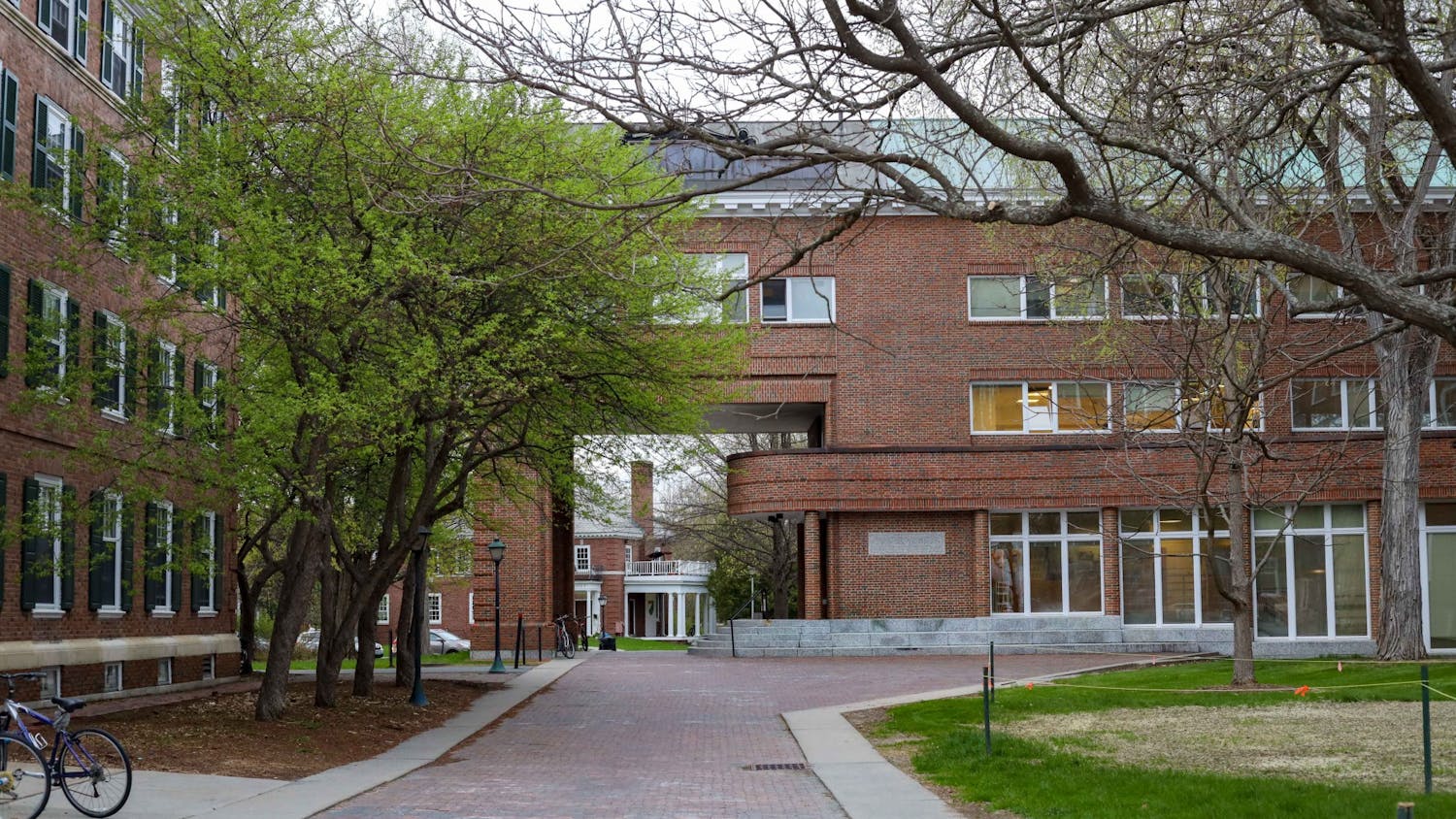Greek houses have begun to host dinners and talks with faculty members as part of the College’s Political Economy Project, and organizers say attendance has improved since they began hosting events at these venues last term.
The PEP was created by government professor Russell Muirhead and economics professors Douglas Irwin and Meir Kohn to provide an outlet for discussion of interdisciplinary questions and ideas that relate to politics, economics and ethics.
“Some of the faculty directors behind the PEP were interested in integrating our programs better with student activities and student social life,” government professor and the project’s director Jason Sorens said.
Alpha Phi sorority’s vice president of campus affairs Hilary Hamm ’16, who organized a dinner at her sorority house with government professor John Carey, wrote in an email that 35 people attended the event, which the house had planned to host for multiple terms.
Carey said that PEP talks can be more accessible to affiliated students when they can be easily attended within their own Greek houses.
“You may not go out of your way to find a faculty discussion at 6 p.m., but if there’s Boloco in your living room and the price of admission is to sit and listen to someone talk for 20 minutes and then have a discussion with your friends, that’s probably going to increase attendance,” he said.
Sorens said that there have been roughly six talks hosted by Greek houses so far, including in A Phi as well as Alpha Chi Alpha, Sigma Phi Epsilon and Zeta Psi fraternities.
“It’s been a minority of houses that have expressed interest, but we’re fine with that,” Sorens said. “We’re only interested in working with the houses that are very interested in making this work and will have strong participation from their members.”
The hosting Greek organization typically boosts audience numbers by a small margin compared to other venues, Sorens said. While some of the “PEP regulars” who attend most events may skip Greek-hosted discussions, roughly 10 to 15 members of the hosting organization typically attend, he said. Additionally, some of the students who attend events at their member houses come to future PEP events as well, he said.
“My sense is that there is quite a variance in what Greek houses are interested in and that there are several that have this academic or intellectual aspiration, and we’ve been happy to work with those houses,” Sorens said.
The PEP hosts dinners most Monday nights with a faculty member and students during which the faculty member presents briefly on a topic related to political economy before a discussion that lasts roughly half an hour.
The speaker and campus events emails are all orchestrated by the PEP. Logistically, the events at Greek houses have not posed much of an issue.
“We don’t demand very much,” Sorens said. “We just need seats, a room big enough to hold all of us, a nice seating arrangement and a place to put the dinners.”
Recent topics have included a talk with Carey about the struggle of rich travelers in poor countries at A Phi, a discussion on gender-based employment discrimination given by government professor Sonu Bedi at Zete and anthropology professor Chelsey Kivland’s lecture on the intersection of urban gang violence and politics in Port au Prince, Haiti, at Sig Ep.
Kivland said she had never stepped foot in a Greek house before her talk. Events held in Greek houses can serve to reach out to more students “and to give the talks less of an academic feel and to be more informal, more conversational and more relaxed,” she added.
Kivland noted, however, that few women attended the dinner at which she spoke. She said that of the roughly 20 individuals who attended, only two were women.
“I don’t know if that had to do with it being hosted in a fraternity house, but fraternities are obviously male-dominated spaces, so that might have precluded some women from attending,” she said.
Sig Ep president Joe Clyne ’16 said hosting the event was a good way to showcase the diversity of benefits his fraternity can bring to campus.
“I think there’s an advantage for Greek houses and campus as well that we have the capacity to offer interesting, educational and beneficial events that are open to everyone,” he said.
Sorens said that Gree
k houses can bring students who might not otherwise involve themselves in the PEP into discussions on a range of issues.
“We get to reach out to students who might not otherwise be involved, and they get the cachet of having an academic event in their house and participating in the kind of living-learning thing,” he said, referencing the living-learning communities that have recently become a residential option at the College.
Clyne is a member of The Dartmouth senior staff.




